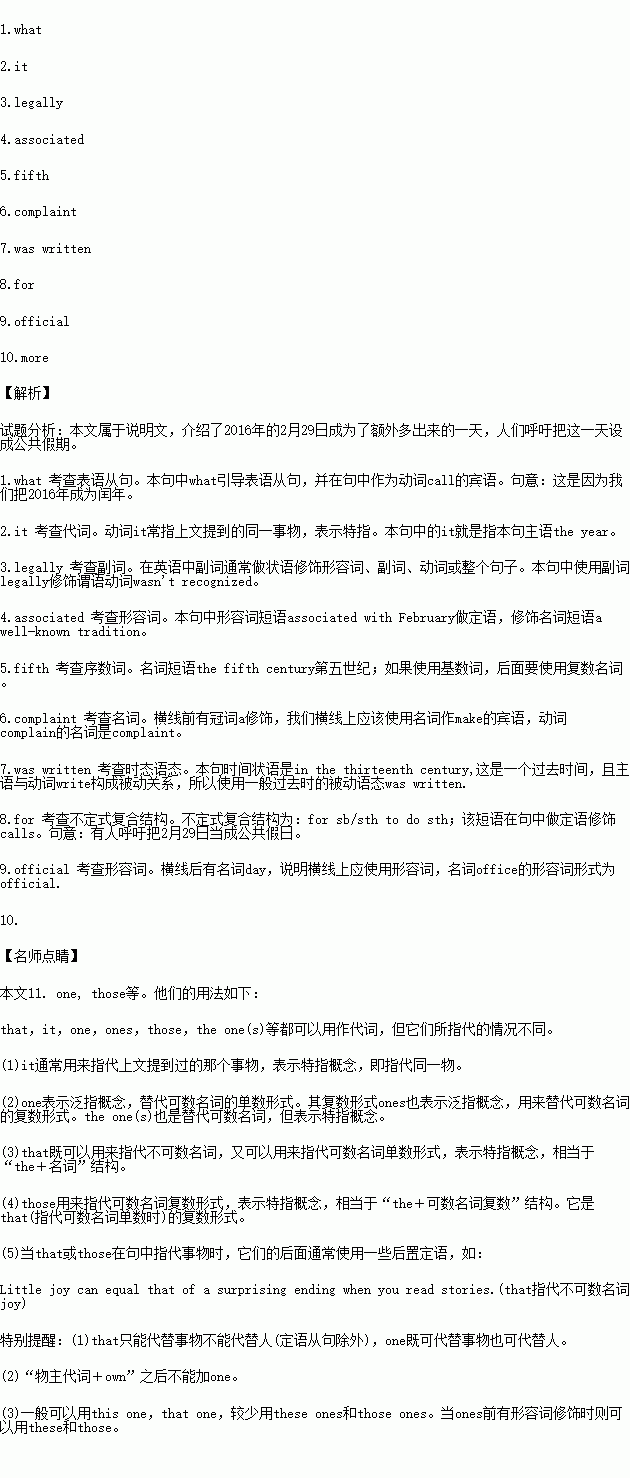题目内容
阅读下面材料,在空白处填入适当的内容(1个单词)或括号内单词的正确形式。
As is known to us, the year 2016 has one extra day in it — February 29th. This is because it’s 1. we call “a leap year”. Every four years, the year has 366 days in 2. instead of 365.
It is called a leap year because hundreds of years ago in England, the extra day wasn’t 3. (legal) recognized. There is a well-known tradition in the UK 4. (associate) with February 29th, introduced many centuries ago. Women are allowed to break with tradition and propose(求婚) to their boyfriends on this day. This all started back in the 5. (five) century, when a famous Irish saint made a 6. (complain) that women had to wait too long for men to propose. According to the legend, Saint Patrick said any female dreaming of a proposal could ask her boyfriend to marry her on this additional day in February. This so-called tradition 7. (write) in law in the thirteenth century. Scotland passed a law allowing women to propose to men in a leap year. It was said that if the men refused, they had to pay a fine!
Now in 2016, there are calls 8. February 29th to become a public holiday. Some people believe that it should be an 9. (office) day off, because no one gets 10. (many) payments for working an extra day in a leap year. For the moment though, the British still have to go to work on this day.


